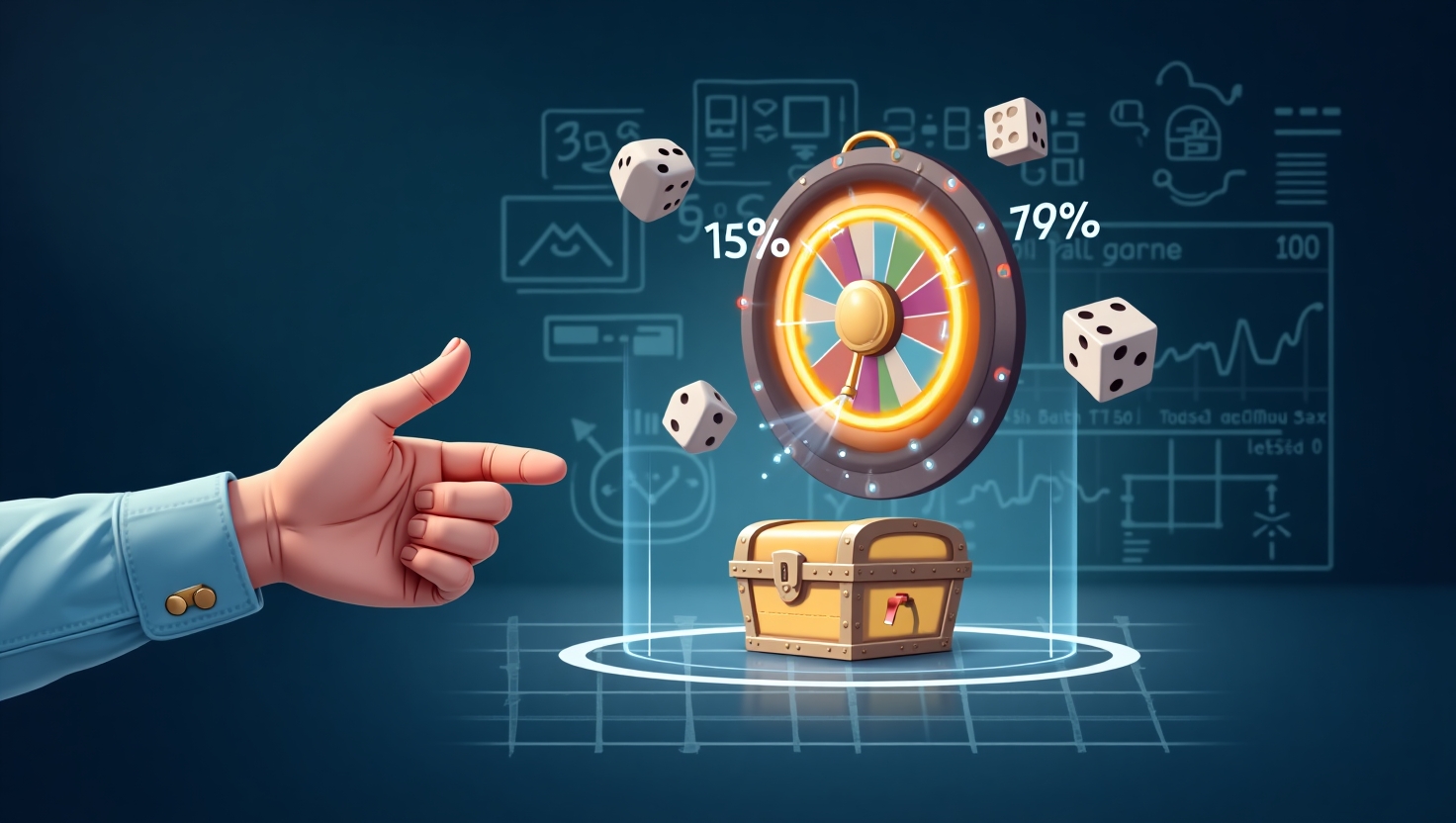
When players crack open a treasure chest, roll a die, or spin a reward wheel, it might seem like luck is doing all the work. But behind the curtain, game developers are hard at work using probability theory to shape how those moments feel.
At Melior Games, we don’t leave the game experience entirely to chance. Instead, we use mathematics to design how randomness unfolds—balancing excitement with fairness. Understanding how this works helps our clients make informed decisions when building games with us.
🎯 What Is Probability Theory in Game Development?
In simple terms, probability theory enables us to control the frequency of certain outcomes. It’s the foundation behind events like:
- Loot rewards
- Combat results
- Puzzle layouts
- Card shuffles
- Enemy behavior
That said, most games don’t use pure randomness. We carefully design “controlled randomness” to meet specific gameplay goals and player expectations.
🎮 How Probability Appears in Games
Let’s explore how this concept comes into play in actual game systems:
1. Loot and Rewards
This is where probability is most noticeable to players. For example:
- A rare item might drop 5% of the time.
- A top-tier character in a gacha game may have a 1% drop rate.
To avoid player frustration, the common practice is to include “pity mechanics” that gradually increase the chance of success after repeated failed attempts. This keeps the system engaging while still feeling fair.
2. Enemy Generation
In games like roguelikes or tower defense titles, enemies don’t always appear in the same way: easy enemies (70%), medium ones (20%), and tough bosses appear only 10% of the time.
This method introduces variety without breaking balance.
3. Combat Outcomes
Critical hits, misses, and special effects are often calculated using chance. A sword may deal a critical blow 10% of the time, for instance. But we smooth these probabilities to avoid long streaks of bad luck—or luck that feels “too good to be true.”
4. Procedural Content
In randomly generated worlds or puzzles, probability helps determine where traps go (e.g., 30% of rooms), how often treasures appear (20%), and when safe areas spawn (10%)
This keeps content feeling fresh and unpredictable, while still within reason.
5. Mini-Games and Luck-Based Systems
From wheels of fortune to mystery boxes, players love moments of surprise. These systems depend heavily on probability to control rewards, pacing, and risk. However, every percentage is carefully calibrated, and nothing is left to chance.
🧠 Why True Randomness Doesn’t Work
One thing many people don’t realize: raw randomness often feels unfair. If a player attempts the same action ten times and fails each one—even with a 90% success rate—they’ll likely feel frustrated.
To prevent this, we use techniques like:
- Weighted randomization: Increasing the likelihood of preferred outcomes.
- Fail-safes: Guaranteeing a positive result after repeated failures.
- Random memory: Making sure the system “remembers” what happened before.
These tools help ensure gameplay feels balanced and satisfying over time.
🛠️ Working With Clients: How We Design Probabilities
At Melior Games, we view probability as part of your game’s core mechanics, not just a background system.
When you work with us, we’ll:
- Help define how much of your game should rely on luck vs. skill.
- Fine-tune reward systems to support both fun and monetization.
- Test probability-based systems with real users.
- Monitor and tweak probability settings after launch using data and player feedback.
Our approach keeps players engaged while building trust and loyalty.
💼 Why This Matters for Your Game’s Success
If you’re building a game that includes surprise elements, then your probability systems directly influence player satisfaction, and as a result, app store ratings and monetization performance.
When probability is poorly handled, it can result in complaints about “unfair” systems and low player retention.
When done right, it leads to longer player engagement, positive user reviews, and steady and predictable earnings
🤝 Let’s Build Smart, Fair Games Together
At Melior Games, we’ve worked on titles for mobile, PC, and console that use probability as a creative tool, not just a gimmick. Whether it’s loot, randomness, or procedural generation, we apply game design expertise and mathematical know-how to shape experiences that keep players coming back.
Let’s take the mystery out of randomness and turn probability into a design advantage.




